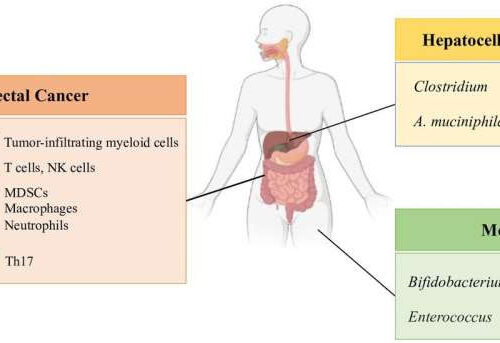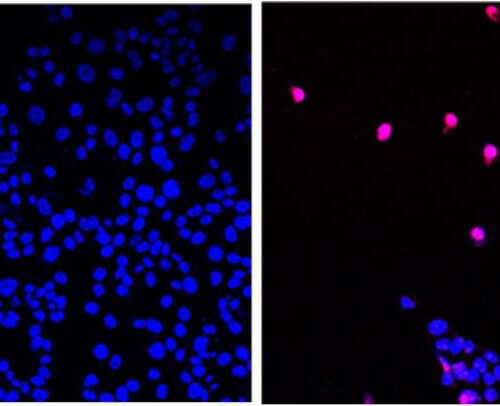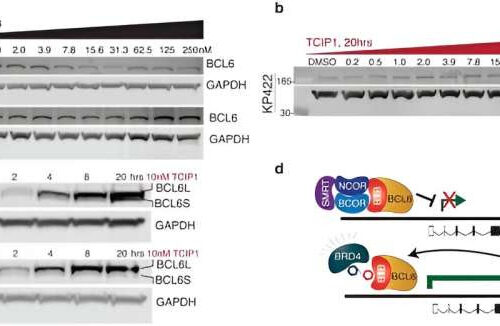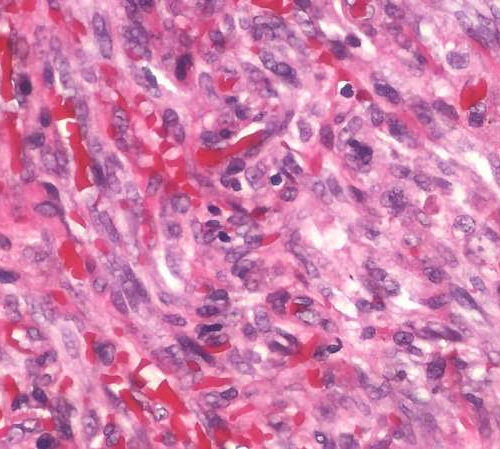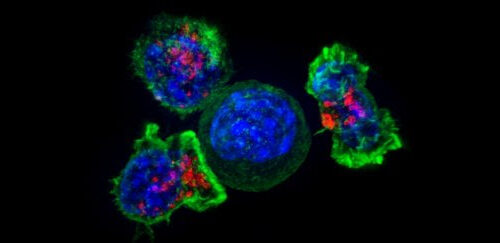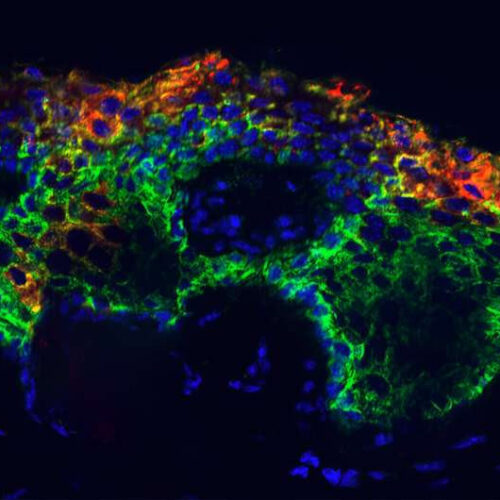by Hannah Norman and Patricia Kime, Kaiser Health News Credit: Pixabay/CC0 Public Domain Gary Flook served in the Air Force for 37 years, as a firefighter at the now-closed Chanute Air Force Base in Illinois and the former Grissom Air Force Base in Indiana, where he regularly trained with aqueous film forming foam, or AFFF—a...
Category: <span>Cancer</span>
Gut microbiota and immune alteration in cancer development: Implications for immunotherapy
by First Hospital of Jilin University Different microbes interact with host immune cells in the development of CRC, HCC and melanoma. Some of these interactions are pro-tumourigenic (labelled in red), while the others are against cancer progression (labelled in blue). CRC, colorectal cancer; HCC, hepatocellular carcinoma; MDSCs, myeloid-derived suppressor cells; NKT, natural killer T cells....
Molecular insights: Detecting gene fusions offers new avenues for advanced cancer management
By Neha Mathur Aug 8 2023 Reviewed by Lily Ramsey, LLM In a recent article published in the Biologics Journal, researchers examined de-identified clinical data to identify gene fusions by next-generation deoxy- and ribonucleic acids (DNA and RNA) sequencing to understand their relationship with observed pathologies in a diverse population of cancer patients. Study: Precision Medicine...
Scientists develop targeted chemotherapy able to kill all solid tumors in preclinical research
by City of Hope National Medical Center The City of Hope-developed small molecule AOH1996 targets a cancerous variant of the protein PCNA. In its mutated form, PCNA is critical in DNA replication and repair of all expanding tumors. Here we see untreated cancer cells (left) and cancer cells treated with AOH1996 (right) undergoing programmed cell death...
Scientists engineer cooperation in cancer cells to activate apoptosis mechanisms
by Justin Jackson , Medical Xpress Conversion of BCL6 auto-inhibitory pathway to feedforward loop. Credit: Nature (2023). DOI: 10.1038/s41586-023-06348-2 Scientists at Stanford University have found a way to induce cell death in cancer cells with a method that could be effective in around 50% of cancers. In a paper, “Rewiring cancer drivers to activate apoptosis,” published in Nature,...
Scientists uncover the ‘Rosetta stone of sarcoma research to personalize treatment
by Institute of Cancer Research Kaposi sarcoma (cropped image). Credit: Yale Rosen, CC BY-SA 2.0 Scientists have unveiled the first and largest encyclopedia of protein alterations in soft tissue sarcomas—opening the door to a new era of understanding and treatment for this group of rare cancers, which account for around 4,000 cases in the U.K. each year. The...
Scientists Discover a New, Unexpected Way That Cancer Cells Spread
HEALTH31 July 2023 By DAVID NIELD Killer T cells surround a cancer cell. (NIH Image Gallery/Flickr/Public Domain) One of the challenges in treating cancer is stopping it from metastasizing, and a new study reveals one of the fundamental mechanisms through which this happens. Now we know about this mechanism, perhaps we can stop it. Key to this newly...
Researchers find an epigenetic key that unlocks common deadly cancers
by Katherine Fenz, Rockefeller University Lesions (in green) akin to basal cell carcinoma that were induced by SOX9 in the epidermis. Abnormal differentiation is shown in red, and blue marks cell nuclei. Credit: Yihao Yang, Fuchs Lab Early on, every stem cell faces a fateful choice. During skin development, for instance, the embryonic epidermis begins as...
Tiny Robots Detect and Treat Cancer by Traveling Deep into the Lungs
July 27, 2023 Nanorobots attacking cancer. Conceptual computer illustration of a medical nanorobot attacking a cancerous cell. [KATERYNA KON/SCIENCE PHOTO LIBRARY / 1148113613 / Getty images] A tiny robot which can travel deep into the lungs to detect and treat the first signs of cancer has been developed by researchers at the University of Leeds. The ultra-soft...
Patients with Breast Cancer Age Faster Than Cancer-Free Women
Published on: July 25, 2023 Alex Biese Receiving a diagnosis of breast cancer and radiation treatment were both associated with increased rates of biological aging among patients who participated in a recent study. Women who have received a diagnosis of and treatment for breast cancer tend to age faster than cancer-free women, according to a...


